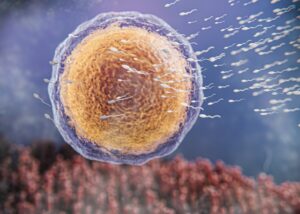In Vitro Fertilization, commonly referred to as IVF, is a fertility treatment that involves the fertilization of an egg with sperm outside the body, in a laboratory dish. The resulting embryo is then implanted into the uterus for pregnancy to occur.

Who Benefits from IVF?
IVF is primarily used in the following situations:
- Couples with infertility issues such as blocked fallopian tubes, low sperm count, or ovulation disorders.
- Individuals or couples with genetic disorders who want to avoid passing them onto their offspring.
- Same-sex couples and single individuals who wish to have a biological child.
- Women who have had difficulty conceiving through other methods.
IVF Process:
- Ovarian Stimulation: The woman is given hormonal medications to stimulate the ovaries to produce multiple eggs.
- Egg Retrieval: When the eggs are mature, a minor surgical procedure is performed to retrieve them from the ovaries.
- Sperm Collection: A semen sample is collected from the male partner or a donor.
- Fertilization: Eggs and sperm are combined in a controlled environment (in vitro) to facilitate fertilization.
- Embryo Culture: Fertilized eggs develop into embryos in a laboratory incubator over several days.
- Embryo Transfer: One or more healthy embryos are transferred into the woman’s uterus through a thin catheter.

Future Advancements
The field of IVF continues to evolve with ongoing research and technological advancements, such as preimplantation genetic testing (PGT) to screen embryos for genetic abnormalities, and improvements in embryo culture techniques.
Success Rates
IVF success rates vary depending on factors such as the woman’s age, the cause of infertility, and the quality of embryos. Generally, younger women have higher success rates, with the chance of pregnancy per cycle typically ranging from 20% to 50%
Ethical and Legal Considerations
The emotional journey of infertility and IVF can be challenging. Many couples seek support from counselors, support groups, and healthcareproviders to navigate the emotional aspects of the process.
Risks and Consideration
Multiple pregnancies (twins, triplets) due to the transfer of multiple embryos.
Ovarian hyperstimulation syndrome (OHSS) in some cases.
Emotional and financial stress
In Vitro Fertilization, commonly referred to as IVF, is a fertility treatment that involves the fertilization of an egg with sperm outside the body, in a laboratory dish. The resulting embryo is then implanted into the uterus for pregnancy to occur.
